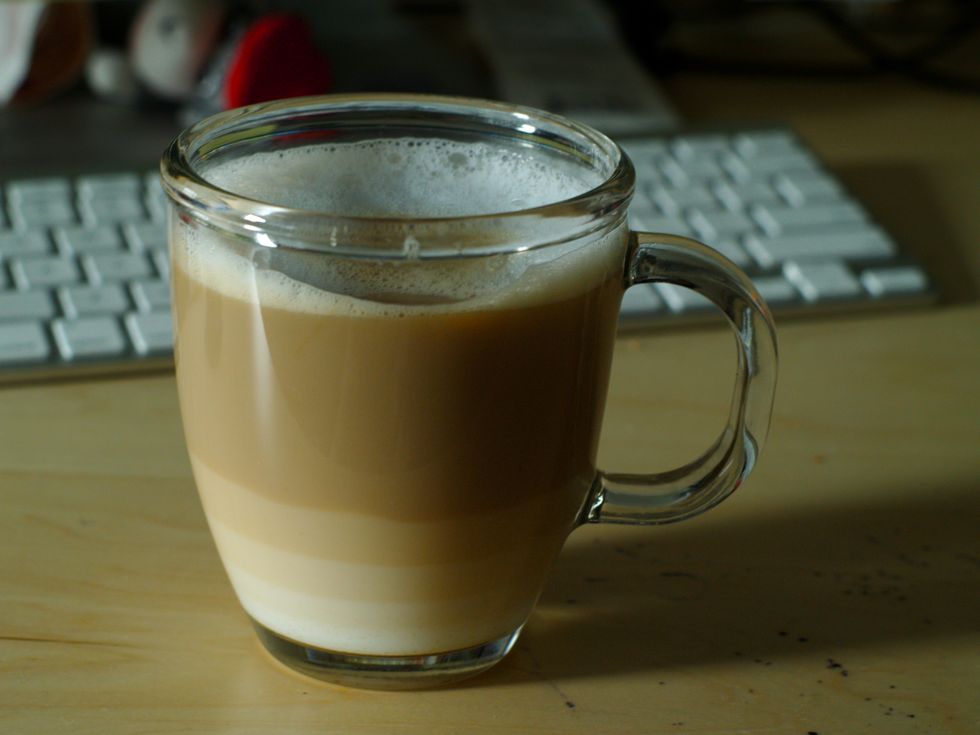For my very last women's studies class of the semester, we had what my professor calls a "Feast of Resistance," where each person brings in a food or drink that is important to their family or to them and represents a struggle or victory over something in some way. The idea is predicated from the quote "Food is the only language we have in common." (With this I'd disagree, because what about music? I won't get into it now because that would be a whole other article.)
But food is something that people can bond over, across cultures. Food is extremely important. Most of the time, for immigrants who have left their home lands behind, left their families behind, who have to find ways to be themselves in a place that is nothing like them at all, food is the one thing they can control.
Food is often the one thing they have that keeps them connected to that past.
This is great and all, and so my two Indian friends and I brought cake rusk, a sweet Indian snack eaten with chai, but when I stood up there and found myself having to explain the significance of this food (which was more about the significance of chai) I found myself at a loss for words.
How do I begin to explain what chai is? What chai means to me and to my family and to my identity as an Indian? Sure, all my desi readers right now are probably like "Okay, its just chai, chill out dude," and my non-desi readers are like, "Chai? I know what that is, that's good stuff, why can't you explain it? It's just tea."
Except it's not just tea. It's not that simple. Chai holds an incredible amount of significance to my life. Chai, for me, is Saturday mornings with my mom, dad, and brother, right before breakfast. Chai is that warm, sweet, milky concoction running down my throat as we call my grandparents in India over FaceTime.
Chai is the catalyst that opens up a conversation between me and distant relatives coming to visit. Chai with guests is a ritual, one I've come to love because of the connections it creates. Chai is that warm mug of relief when my mom comes home from work on Wednesday evenings. Chai is the first Indian food I learned to make. Chai is the same everywhere, yet so, so different.
There's a science behind the perfect ratios of milk to water to tea leaves to sugar. And then when you're advanced enough, you add ginger, ground black pepper, dried basil, cardamom. A perfect blend, and everyone does it differently. Chai at Nani's house is different from chai at Taiji's house is different from chai at my house is different from the chai my brother makes.
But chai anywhere is a connection. A connection to people, a connection to India, to my parents, grandparents. Chai is so much more than a drink I pick up at Starbucks. Chai is the experience, history, and culture that I call my own.
That's the thing about culture. It's not so much the thing itself, as the meaning surrounding it. No, chai itself isn't that special. Anyone can make chai. Anyone can steep loose tea leaves in water and add milk and make chai. But it's the years of meaning behind chai, the memories, the connections I've formed through chai.
It's the same for any aspect of my Indian culture, whether that's eating dal chawal (lentil soup and rice) with my bare hands, feeling my food before I eat it, or getting dressed up in a lengha, or putting on mehendhi (henna). It's the significance behind each of these artifacts and what they mean to each person and each family.
It's like this in any culture. For me, Christmas is not nearly as special or meaningful as it is for my Christian friends, whose families have celebrated those traditions for so long. They have real memories attached to their Christmas traditions, just as I do with my Indian traditions.
Something about traditions just root us so strongly to our families and culture. These little indulgences into my culture with these traditions, I can't explain in words what they mean to me. I can't explain their significance adequately. But they are so important. It connects me to my grandparents, to my mother and father. It recenters me, grounds me, reminds me who I am and where I come from.
How do you begin to explain something so simple yet so significant?



















